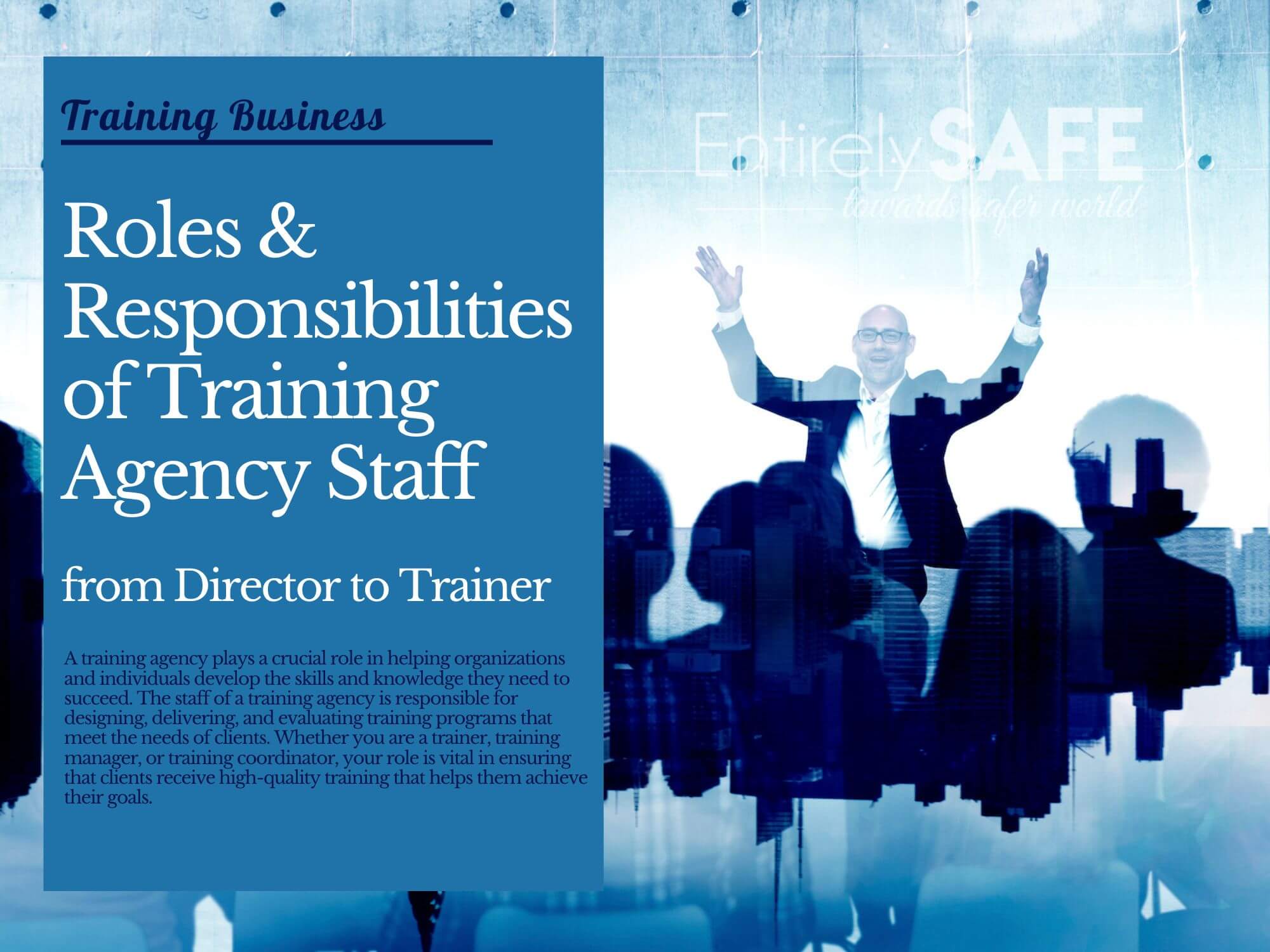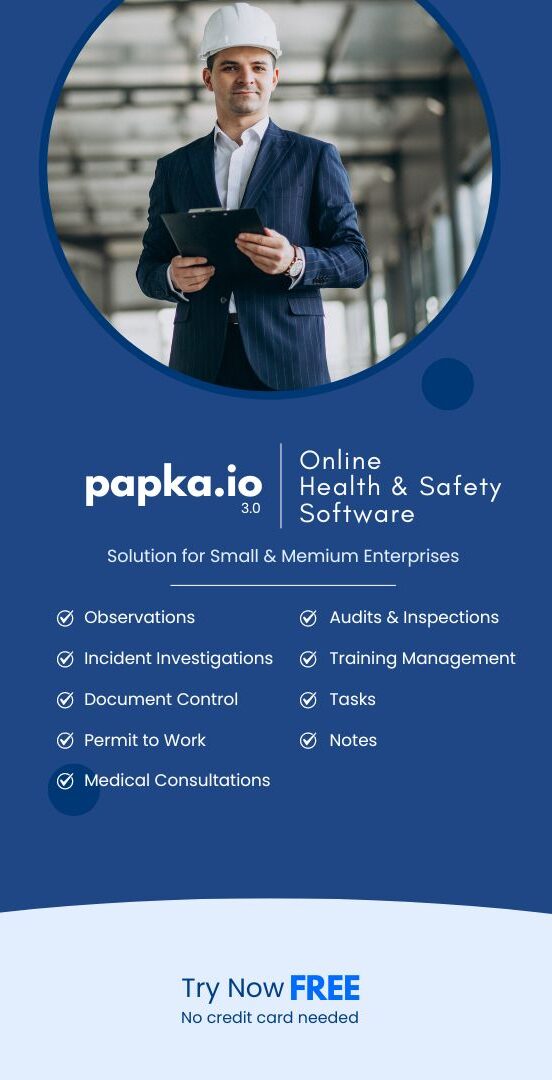Key Roles and Responsibilities of Training Agency Staff, from Director to Trainer

A training agency plays a crucial role in helping organizations and individuals develop the skills and knowledge they need to succeed. The staff of a training agency is responsible for designing, delivering, and evaluating training programs that meet the needs of clients. Whether you are a trainer, training manager, or training coordinator, your role is vital in ensuring that clients receive high-quality training that helps them achieve their goals.
In this article, we will take a closer look at the roles and responsibilities of the training agency staff. We will explore what each role entails, and how they work together to deliver effective training programs. Whether you are new to the industry or a seasoned professional, this article will provide valuable insights into the day-to-day workings of a training agency and the important contributions that each staff member makes.
Training Agency Director Roles and Responsibilities
- Setting the overall strategy and vision for the agency: This includes creating a long-term plan for the growth and development of the agency, and ensuring that it aligns with the goals and objectives of the organization. The Director is responsible for setting the strategic direction for the agency and for making key decisions about its operations.
- Building and maintaining relationships with clients, partners, and other stakeholders: This includes developing and maintaining relationships with clients, partners, and other stakeholders to ensure their satisfaction and to generate new business. The Director is responsible for building a strong reputation for the agency and for fostering relationships that will support its growth.
- Representing the agency in industry and community events: This includes representing the agency at industry and community events, such as conferences, trade shows, and networking events. The Director is responsible for building the agency’s reputation and visibility in the industry and community.
- Continuously seeking new opportunities for growth and expansion of the agency: This includes identifying new opportunities for growth and expansion, such as new markets or services, and developing plans to take advantage of these opportunities. The Director is responsible for ensuring that the agency is continuously growing and evolving to meet the needs of its clients and the industry.
Training Manager Roles and Responsibilities
- Developing and implementing overall training strategy and plans for the agency: This includes creating a comprehensive plan for training and development that aligns with the agency’s overall goals and objectives. The Training Manager will also be responsible for regularly reviewing and updating the plan as needed.
- Managing the training team and providing guidance, support and mentorship to trainers: This includes recruiting, hiring and managing the training team, ensuring that trainers have the necessary skills and knowledge to deliver high-quality training programs. The Training Manager will also provide guidance, support and mentorship to trainers to help them improve their skills and advance in their careers.
- Identifying the training needs of clients: This includes working with clients to understand their specific training needs, such as areas where they need to improve performance or acquire new skills. Based on this information, the Training Manager will create customized training solutions that address those needs.
- Overseeing the development of training materials: This includes ensuring that training materials are of high quality, visually appealing and easy to understand. The Training Manager will work with the training team to develop materials that meet the needs of clients.
- Managing the delivery of training programs: This includes overseeing the scheduling and logistics of training programs, both in-person and online. The Training Manager will also be responsible for ensuring that trainers have the necessary resources and support to deliver training programs effectively.
- Monitoring and evaluating the effectiveness of training programs: This includes measuring the impact of the training on participants, such as changes in behavior or improvements in performance. The Training Manager will use this information to make adjustments to the training program as needed and ensure that the training provided is meeting the client’s needs.
- Building and maintaining relationships with clients: This includes communicating with clients to understand their needs, providing regular updates on training progress, and ensuring that clients are satisfied with the training provided.
- Managing the budget for training and development activities: This includes managing the budget for training and development activities and ensuring that the agency stays within budget while delivering high-quality training programs.
- Staying current with industry developments and trends: This includes staying informed about new developments, trends, and best practices in the industry, in order to ensure that training programs remain relevant and effective.
- Collaborating with other departments: This includes working with other departments, such as HR and sales, to ensure that training programs align with overall business goals and support the agency’s objectives.
Trainer Roles and Responsibilities
- Assessing the training needs of clients and creating customized training solutions: This includes working with clients to understand their specific training needs, such as areas where they need to improve performance or acquire new skills. Based on this information, the trainer will create customized training solutions that address those needs.
- Designing and creating training materials: This includes creating presentations, handouts, and assessments that will be used during training sessions. The trainer will also ensure that the materials are visually appealing and easy to understand.
- Facilitating training sessions: This includes leading training sessions, whether they are in-person or online. The trainer will engage with participants, facilitate group discussions, and provide feedback and guidance.
- Evaluating the effectiveness of training programs: This includes measuring the impact of the training on participants, such as changes in behavior or improvements in performance. The trainer will use this information to make adjustments to the training program as needed.
- Maintaining records of training activities and progress: This includes keeping track of attendance, progress, and evaluations of participants. This information is used to measure the effectiveness of the training and to create reports for clients.
- Building and maintaining relationships with clients: This includes communicating with clients to understand their needs, providing regular updates on training progress, and ensuring that clients are satisfied with the training provided.
- Staying current with industry developments and trends: This includes staying informed about new developments, trends, and best practices in the industry, in order to ensure that training programs remain relevant and effective.
Assessor Roles and Responsibilities
The roles and responsibilities of an assessor in a training agency may vary depending on the agency and type of training being provided. However, some common responsibilities of an assessor include:
- Planning and delivering assessments: The assessor is responsible for planning, designing, and delivering assessments to evaluate the knowledge and skills of trainees.
- Developing assessment tools: The assessor is responsible for developing assessment tools such as test questions, rubrics, and evaluation forms.
- Interpreting assessment results: The assessor is responsible for interpreting the results of assessments and providing feedback to trainees and trainers.
- Maintaining assessment records: The assessor is responsible for maintaining accurate and up-to-date records of assessment results and other relevant information.
- Ensuring compliance: The assessor is responsible for ensuring that all assessments are conducted in compliance with relevant laws, regulations, and industry standards.
- Communicating with stakeholders: The assessor is responsible for communicating with stakeholders such as trainees, trainers, and other agency staff to gather input and provide feedback on assessments.
- Providing support and guidance: The assessor is responsible for providing support and guidance to trainees and trainers throughout the assessment process.
- Reviewing and updating the assessment process: Assessor is responsible for reviewing and updating the assessment process periodically to ensure its effectiveness and relevance.
Training Coordinator Roles and Responsibilities
- Coordinating the scheduling and logistics of training programs and events: This includes scheduling training sessions and events, coordinating the logistics of training programs, such as venue bookings, equipment rentals, and catering arrangements.
- Developing and maintaining training schedules, agendas, and training materials: This includes creating detailed training schedules and agendas, and ensuring that training materials are up-to-date and ready for use in training sessions.
- Assisting in the development of training programs and modules: This includes working with the training team to research and develop training programs and modules, and providing input on the content and design of training materials.
- Communicating with clients and trainers to coordinate schedules: This includes communicating with clients to understand their training needs, and coordinating with trainers to schedule training sessions. It also includes ensuring that all necessary resources are available for training sessions, such as equipment and materials.
- Coordinating the delivery of online training programs and webinars: This includes setting up virtual meeting platforms, managing participant registration, and providing technical support to participants during the training.
- Maintaining accurate records of training activities and progress: This includes keeping track of attendance, progress, and evaluations of participants. This information is used to measure the effectiveness of the training and to create reports for clients.
- Providing administrative support for the training team: This includes booking travel arrangements, processing invoices, and other administrative tasks that support the training team.
- Assisting in the evaluation of training programs: This includes measuring the impact of the training on participants, such as changes in behavior or improvements in performance. The Training Coordinator will use this information to make recommendations for improvements to the training program.
- Helping to manage the budget for training and development activities: This includes assisting in the management of the budget for training and development activities, such as monitoring expenses and ensuring that the agency stays within budget while delivering high-quality training programs.
- Staying current with industry developments and trends: This includes staying informed about new developments, trends, and best practices in the industry, in order to ensure that training programs remain relevant and effective.
Conclusion
The roles and responsibilities of the training agency staff are diverse and integral to the success of the agency. All the team members play unique but interdependent roles in the development and delivery of training programs. Together, they work to ensure that clients receive high-quality training that meets their needs and helps them achieve their goals. It is important for each staff member to be aware of their roles and responsibilities and work in coordination with each other to achieve the goal of providing effective training programs.

